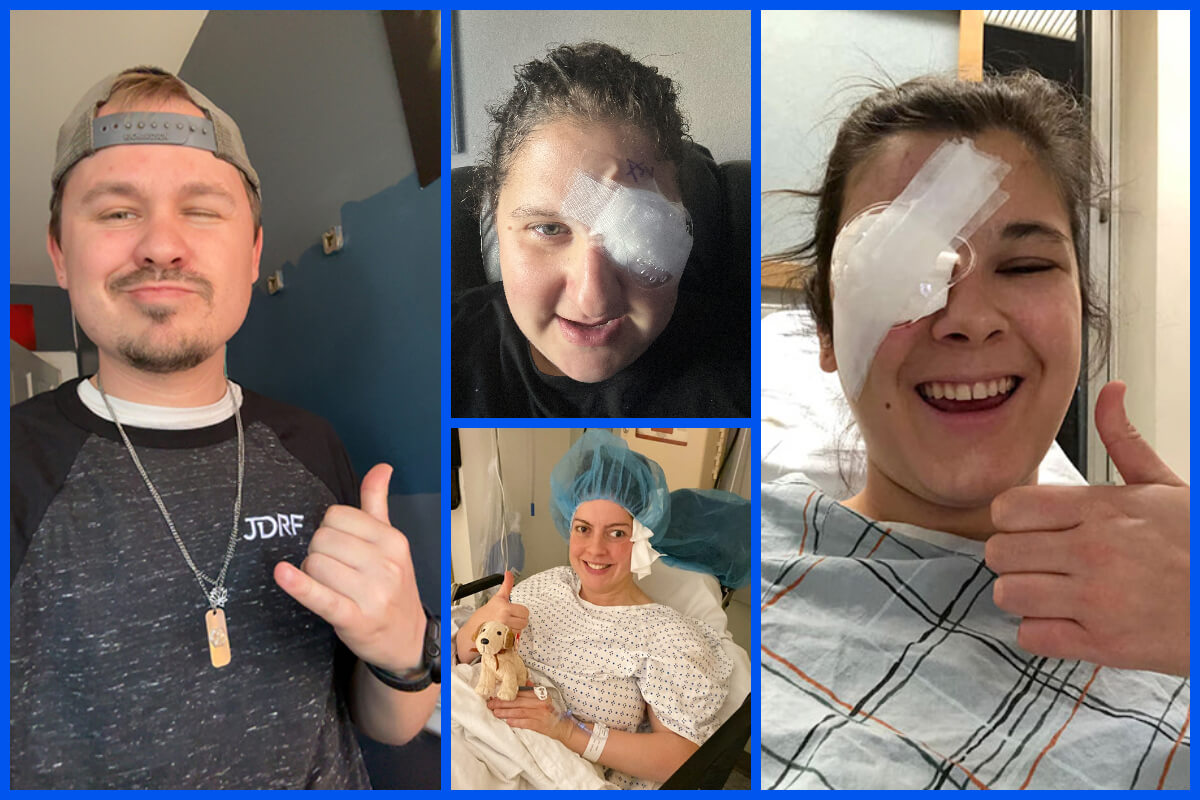
For people living with type 1 diabetes (T1D), eye disease is a troubling reality—over 40 percent develop diabetic eye disease, sometimes resulting in blindness. But early detection and timely, appropriate treatment can reduce the risk of blindness and complications by over 95 percent.
Some of our Breakthrough T1D staff members living with T1D have experienced eye disease. Below, they share their experiences with diabetic eye disease to help raise awareness about the importance of being proactive when it comes to vision health.
Arielle Cilaire
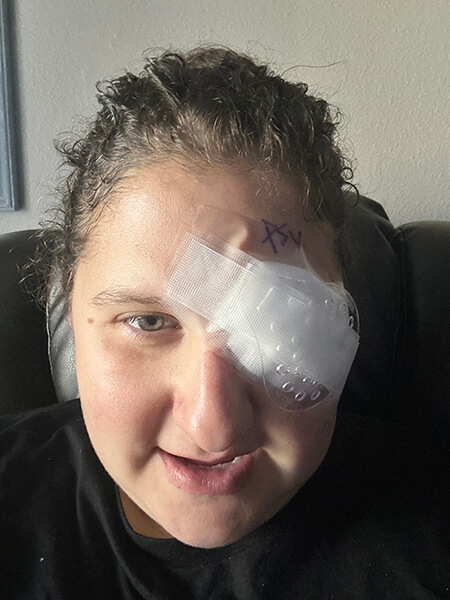
For years I had seen an ophthalmologist to check my eyes. During the pandemic, the office closed, and I had to search for a new one. I ended up making an appointment with a retinal specialist. This was 2021—I had just given birth in 2020. The retinal specialist told me something I never thought I would hear. He said, “You have retinopathy in both eyes, stronger in your left.” I never had signs of retinopathy before, or so I thought. He shared that pregnancy can cause retinopathy to progress. I told him how I happened in his office by chance, and he said that all people with T1D should see a retinal specialist. Most ophthalmologists don’t have the right machines to view the full eye.
A year later, I had laser, eye injections, and a Vitrectomy surgery. After my surgery, my new doctor said, “We changed the course of your retinopathy.” I’m not very old, but my age of diabetes is 30 years and the technology for most of my diabetic life wasn’t great. However, now technology and options are amazing for our eye health and diabetes altogether. This is all thanks to Breakthrough T1D. Please go see a retinal specialist and let’s change the course of diabetic eye health together!
Grace Bennett
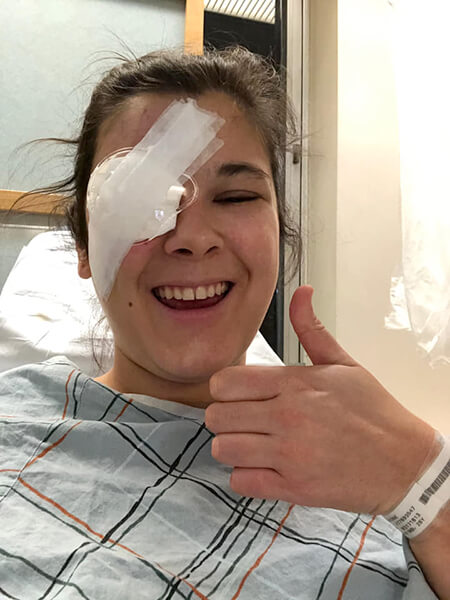
Experiencing eye complications (or any complications) because of T1D is a terrifying thing to go through. Beyond the fear of the unknown and the harsh reality that you’re possibly losing something crucial to your independence and everyday life, the stigma surrounding T1D complications makes going through them much harder.
When I first experienced complications with my vision, the shame and isolation I felt were immeasurable. I thought that it was all my fault and that I couldn’t really complain because it HAD to be because of something I did. My retinal specialist told me that living with T1D over a long period of time (over 20 years in my case) can also cause complications and that they aren’t only caused by neglecting T1D management. Hearing that, I felt much better and was able to focus on addressing the complication itself.
If you meet someone who shares that they have experienced T1D complications don’t use them as some sort of cautionary tale about T1D management. Listen with compassion and understanding—after all, we’re all doing the best we can managing this awful disease.
Liz Walsh
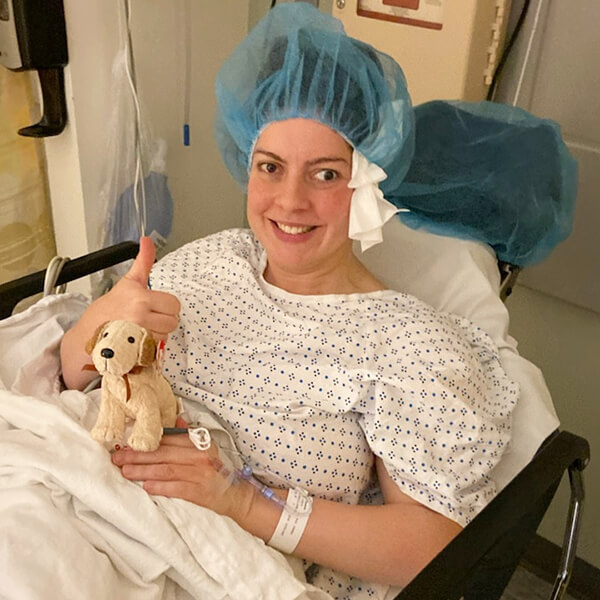
If I could give one piece of T1D advice to my younger self, it would be to not take your eye health for granted. Living with T1D for 30+ years, I learned how quickly things can change (literally) in the blink of an eye. I received a diagnosis of retinopathy that required multiple surgeries, laser treatments, and eye injections to stabilize. It was scary but thankfully, with the treatments and technology available, there was light at the end of the tunnel.
Make (and keep) the appointments to monitor your eye health—the earlier you start this in your T1D journey, the better. Complications can happen even with great control because T1D doesn’t play fair, but taking action to prevent, detect, and manage them early can help keep your future looking bright.
Read Liz’s full story here.
Nate Keeney
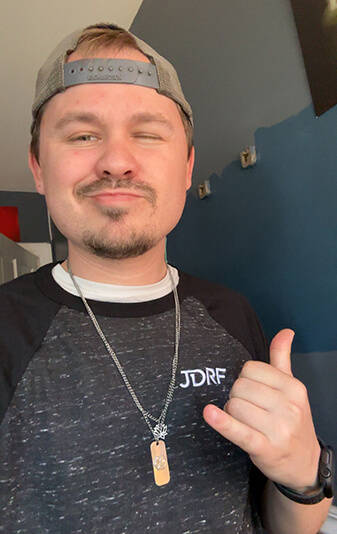
In 2017, I woke up with blood in my vision and scared not knowing what would happen next. Three eye surgeries later, I live with just one working eye and one doing the best it can. Going to the eye doctor may be scary. Getting drops, poked, and prodded may seem like a lot, but getting checked (even if you have a good A1c) outweighs going through a more complicated journey.
Even with all that I have been through with my eye, I still live a great life adjusting to what I have left with my vision. Don’t let fear keep you away from having good vision and preventing any major complications!
Learn more about reducing your risk of developing diabetic eye disease.
Through the Mary Tyler Moore Vision Initiative, a special initiative of the Mary Tyler Moore and S. Robert Levine Charitable Foundation and Breakthrough T1D launched to honor Mary’s contributions to diabetes awareness and research, Breakthrough T1D is supporting research to find new ways to prevent the development of diabetic retinal disease, arrest its progression to preserve visual function, and restore lost vision.